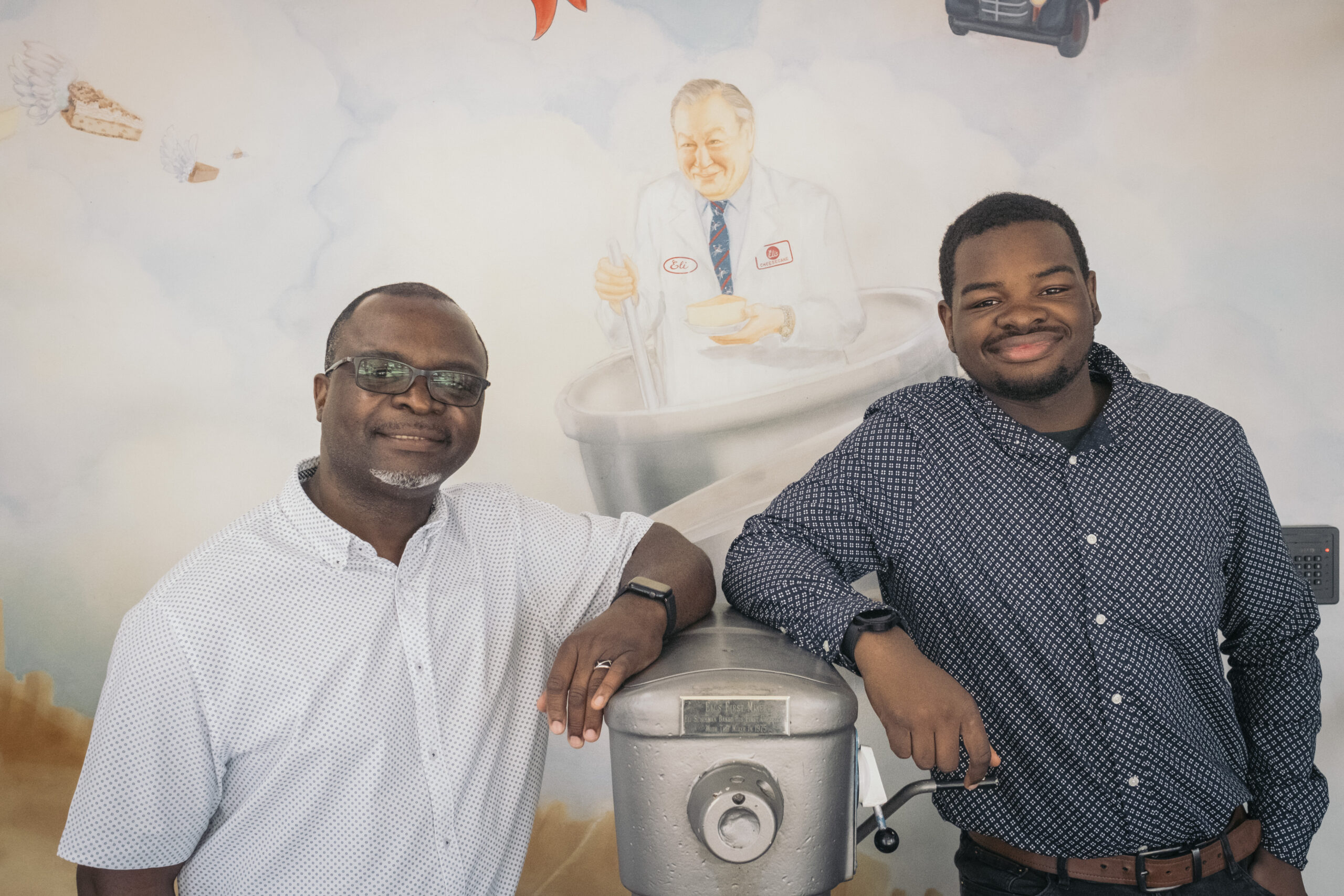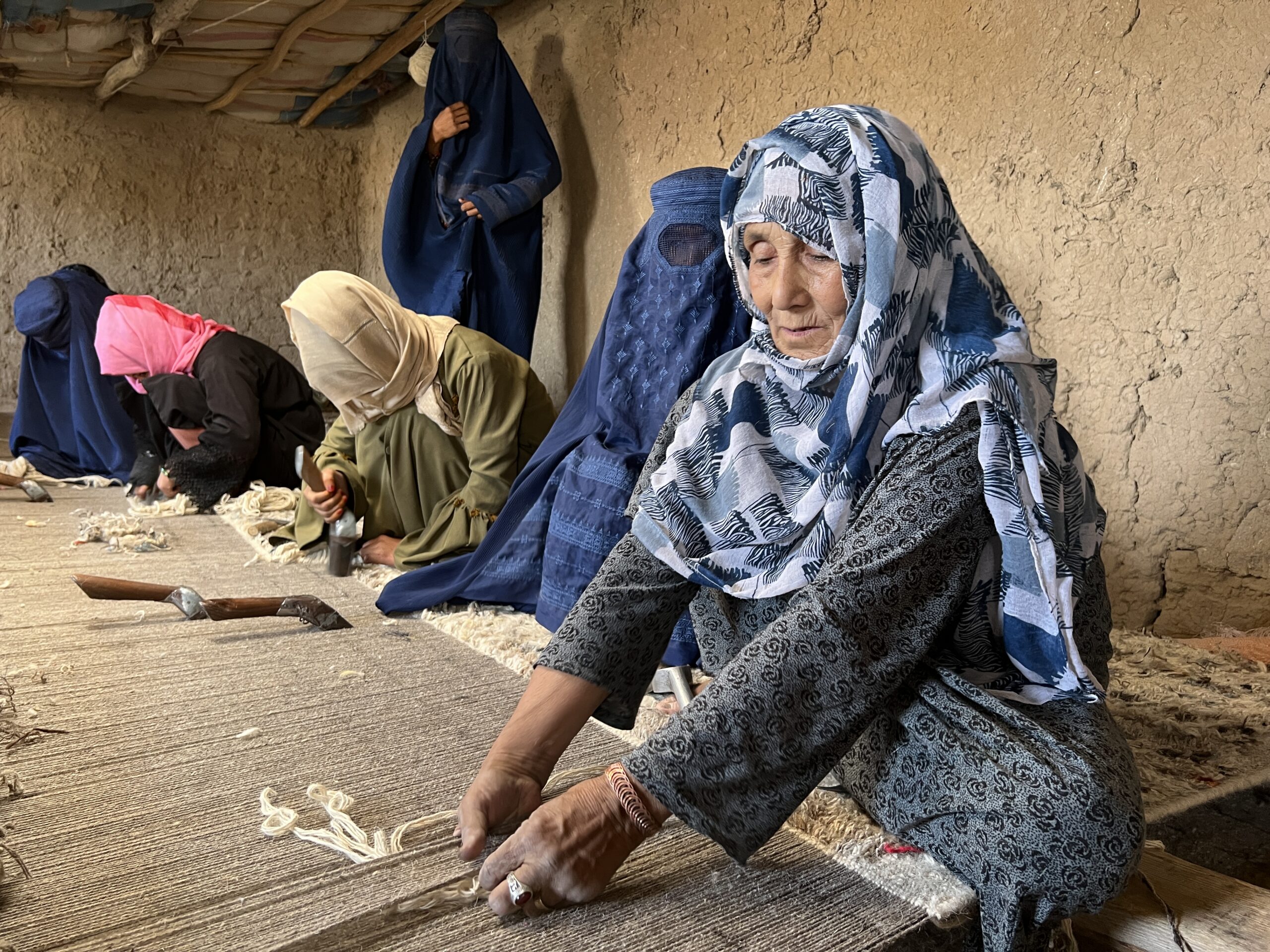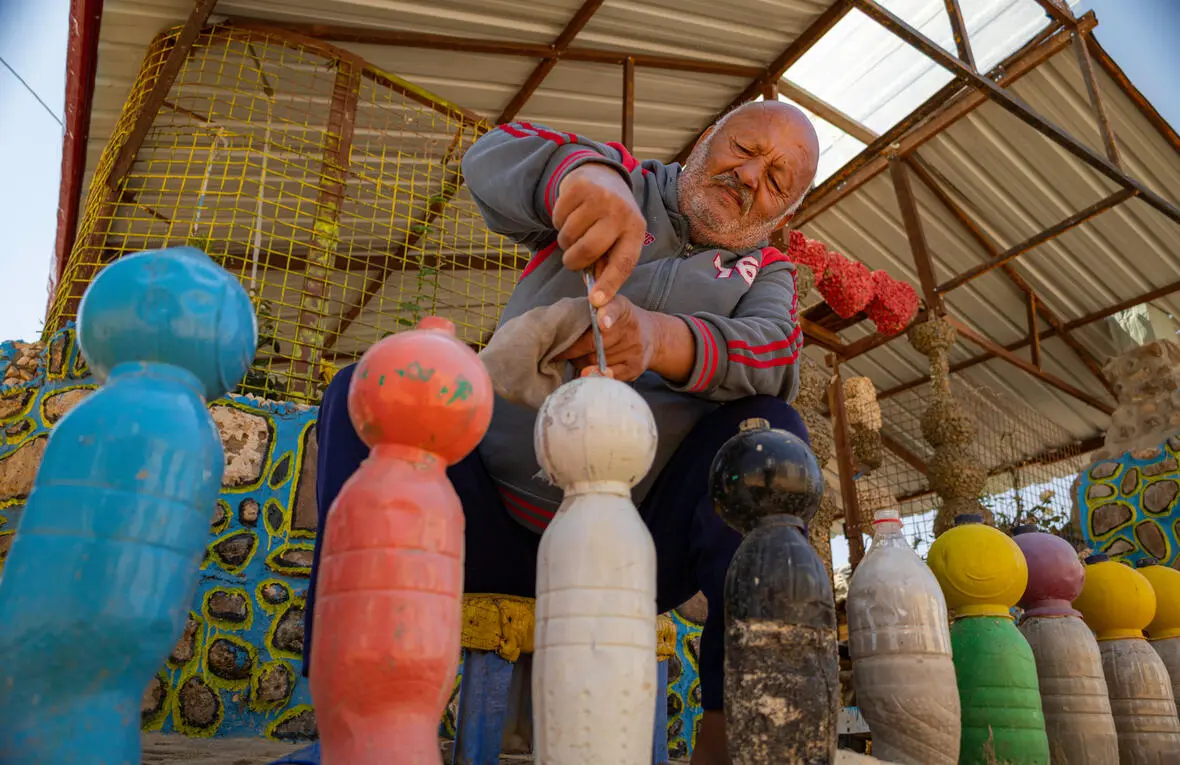Livelihoods
Through decent work, forcibly displaced people can provide for their families’ needs, maintain their dignity, become more resilient and be empowered to shape their futures.
Photo: ©UNHCR/Andy Hall
Working for a living enables forcibly displaced people to reclaim control of their futures and contribute to their host communities, but they often face barriers to work. Here’s how UNHCR’s helping:
Advocacy
UNHCR advocates for refugees’ right to work and inclusion in the economy and social protection systems.
Partnerships
UNHCR partners with development agencies, private sector companies and others to create employment opportunities.

Financial Inclusion
UNHCR works with financial service providers and relevant partners to remove barriers to access financial services.
After being forced to flee, one of the most effective ways people can rebuild their lives with dignity and in peace is through the opportunity to work and earn a living.
While aid is critical in the initial period after fleeing, opportunities for employment, the ability to learn new skills or a chance to start a business are important steps for refugees to achieve self-sufficiency. Such opportunities are vital for refugees to rebuild their lives and once again become productive members of a community.
Every refugee deserves a bright future. This is why UNHCR helps create opportunities for them while finding long lasting solutions for refugees. With the support of donors, UNHCR empowers refugees to build economic, cultural and social ties with host communities.
Why are livelihoods so important for refugees and forcibly displaced people?
Through decent work, refugees and displaced people can provide for their families’ needs, maintain their dignity, become more resilient and be empowered to shape their future. Being able to work and making use of their skills and talents also allows refugees more ways to contribute to their host communities.
What are the primary barriers to formal employment for refugees?
Many barriers stand in the way of refugees’ ability to access formal employment. These include:
- High unemployment in the economy of their host community.
- A lack of awareness from employers about refugee rights and IDs. The heterogeneity of working rights by status (asylum seeker, refugee, temporary protection, etc.) presents inherent challenges for employers. Bureaucratic requirements are also often perceived as too complex and time-consuming.
- No recognition of refugee skills, diplomas and certifications. Refugees may not speak the language of their host country, which makes it hard to assess their professional potential. They also often lack documents to prove their educational attainment.
- Administrative and practical restrictions. Employment in certain jobs sometimes requires additional licences and certificates. It is often very difficult for refugees to get references and security checks from their countries of origin.
- No or restricted right to work.
- Necessity of permits.
- A lack of language skills for the labour market.
How does UNHCR help?
UNHCR helps those forced to flee by promoting their economic inclusion, advocating for their right to work and supporting their inclusion in government social protection systems. UNHCR also supports refugees to gain access to the labour market in their host communities, which in turn allows them to seize economic opportunities.
What is economic inclusion and how can economic inclusion for refugees be achieved?
Economic inclusion is a transformative approach that actively involves displaced populations in the economic life of their host communities. It creates an enabling environment, empowering refugees, asylum-seekers, internally displaced persons, returnees and stateless individuals to rebuild their lives through sustainable economic activities.
Empowering refugees to earn a decent living and participate in local economies requires the engagement of a broad range of stakeholders. UNHCR’s role is to advocate for and convene different stakeholders and foster collaboration between them.
UNHCR builds partnerships with financial service providers, development agencies and private sector companies to enhance inclusion and access to employment and entrepreneurship opportunities.
What is MADE51?
To showcase what an innovative, market-based model for economic inclusion of refugees might look like, UNHCR developed MADE51 – a global brand of artisanal home décor and accessories crafted by refugees.
MADE51 brings beautiful, refugee-made products to the international market. The initiative connects refugees with social enterprise partners to design, produce and market artisanal products around the world.
MADE51 is a tangible way to demonstrate solidarity with refugees while helping refugees earn valuable income. Each time someone buys a MADE51 product, they directly enable refugees to earn income and contribute to their host country’s economy.
Check out MADE51 products here: MADE51
Learn more about the different livelihoods refugees around the world are pursuing

Eli’s Chicago Cheesecake creates a winning recipe for refugee inclusion
Partnering with refugee resettlement organizations, Eli’s Cheesecake Company has seen the benefit of welcoming refugees and helping them grow alongside the business.

Afghanistan’s women carpet weavers thrown an economic lifeline
A UNHCR-supported carpet weaving and processing centre will provide new jobs and better working conditions for former refugee and displaced Afghan women.

Syrian refugee turns trash into treasure in Jordan
In Za’atari refugee camp, one man’s creative spirit and unwavering determination have transformed discarded materials into objects of beauty.

